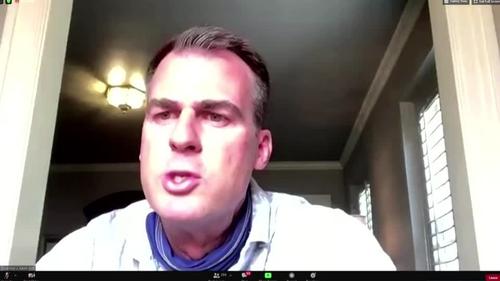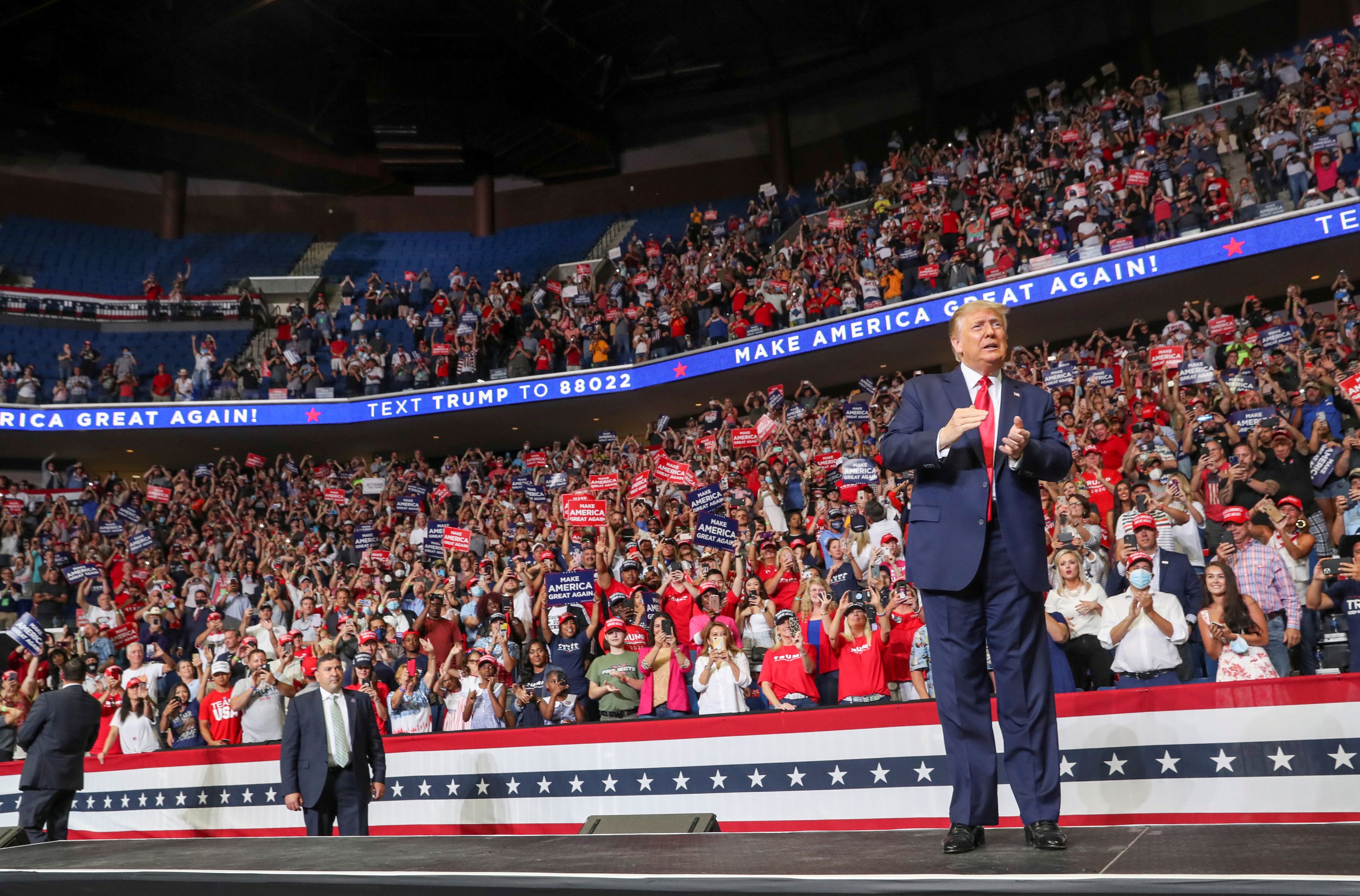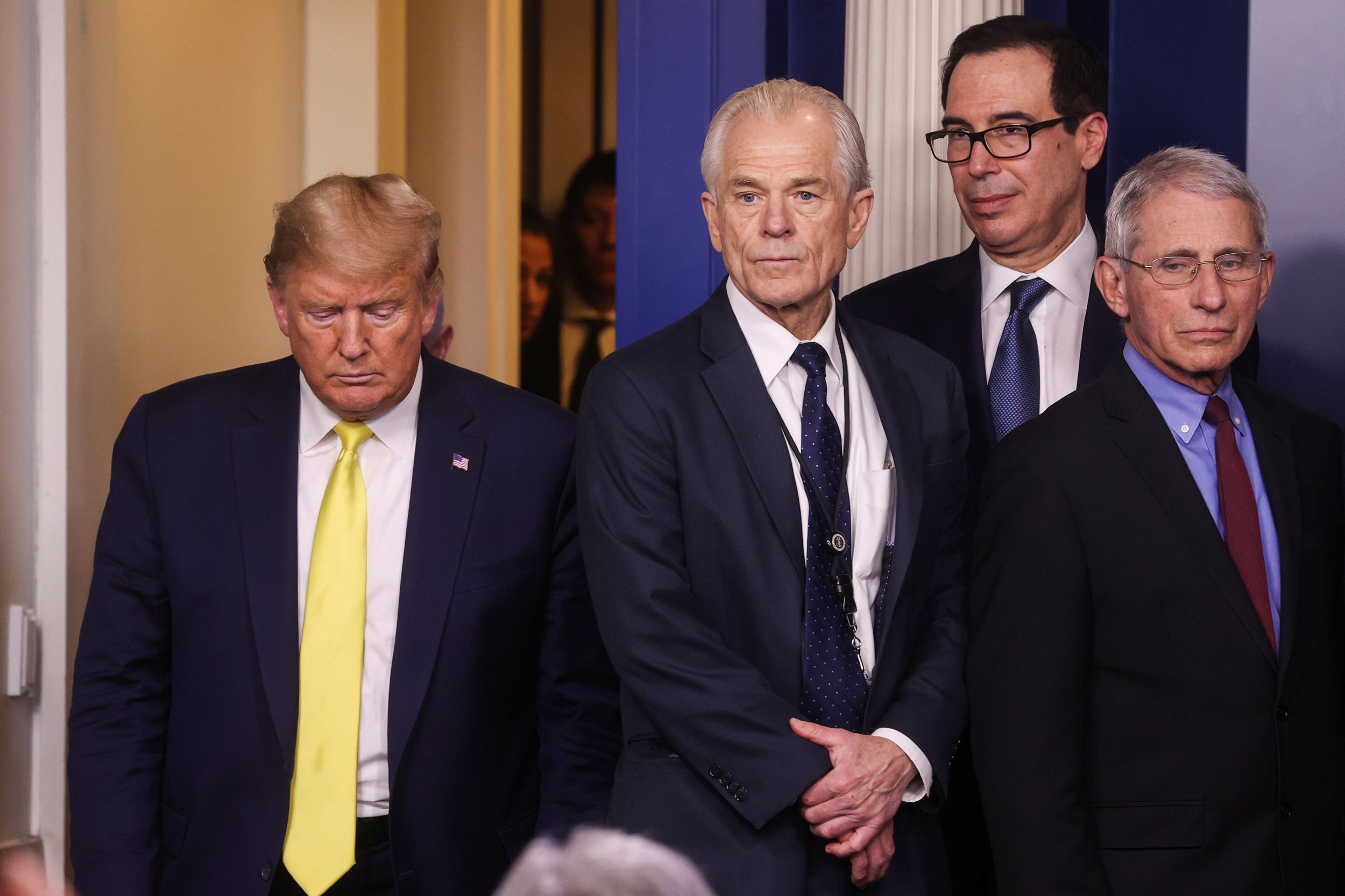The governor of Oklahoma announced Wednesday that he has tested positive for the coronavirus, weeks after he attended U.S. President Donald Trump's campaign rally in the state.
Cases have surged in Oklahoma, and local health officials have said that Trump's indoor rally and large public protests in June "more than likely" contributed to the spike in new infections.
Governor Kevin Stitt said he believes he is the first U.S. governor to be diagnosed with coronavirus, but that it was unlikely he contracted it at Trump's June 20 rally because the event occurred too long ago.

Governor of Oklahoma Kevin Stitt announces that he has tested positive for the coronavirus, in a video conference, July 15, 2020. /Reuters
Governor of Oklahoma Kevin Stitt announces that he has tested positive for the coronavirus, in a video conference, July 15, 2020. /Reuters
"I got tested yesterday for COVID-19, and the results came back positive," Stitt told an online press conference.
He said he was "a little bit achy" on Tuesday but otherwise felt "fine."
The 47-year-old Republican said he immediately placed himself in quarantine away from his family and will work from home until he is free of the virus.
Stitt has often declined to wear a mask at meetings and did not wear one at the Trump rally, but he is urging residents to take precautions.
"We know it's here in Oklahoma, it's not going away," Stitt said, adding "We need to take this virus seriously" and Oklahomans should "continue to get tested."
Trump faced major blowback for insisting on holding a crowded indoor rally in the heat of a pandemic. His campaign handed out masks at the Tulsa event, but few of the supporters who attended wore them and social distancing guidelines were largely ignored.

U.S. President Donald Trump reacts to the crowd as he arrives onstage at his first re-election campaign rally in several months in the midst of coronavirus pandemic, at the BOK Center in Tulsa, Oklahoma, U.S., June 20, 2020. /Reuters
U.S. President Donald Trump reacts to the crowd as he arrives onstage at his first re-election campaign rally in several months in the midst of coronavirus pandemic, at the BOK Center in Tulsa, Oklahoma, U.S., June 20, 2020. /Reuters
'Let's stop this nonsense'
While New York and New Jersey were COVID-19 hotspots a couple of months ago, the virus has shifted to states that re-opened early. Across the country, new cases are now averaging around 60,000 a day. At least 27 states have paused or reversed their reopening plans.
U.S. infectious disease expert Anthony Fauci has said "the inevitable happened."
Speaking to The Atlantic Council on Wednesday, Fauci said the U.S. was at about 20,000 new cases a day when reopening started.
"The problem is, since we started off our baseline so high, as we tried to open up, you saw that there was a wide variation in how that was done," he said.
Cases started to rise, "and now we're hanging around 60,000. That's untenable. We've got to turn that around, and that's really the issue we've got to address right now," Fauci added.
Fauci, who has become a popular and trusted figure during the coronavirus outbreak, came under criticism from President Donald Trump and some of his Republican allies as Fauci cautioned against reopening the U.S. economy too soon.
The White House over the weekend distributed a list of statements Fauci made early in the pandemic that turned out to be wrong as understanding of the disease developed, according to media reports.
When asked of the White House effort to discredit him, Fauci called it "bizarre" and urged an end to the divisiveness over the country's response to the coronavirus pandemic, saying "let's stop this nonsense."
The White House has denied that Fauci has been sidelined. However, White House trade adviser Peter Navarro wrote a critical opinion piece attacking Fauci for having made mistakes.
Before departing for a trip to Atlanta, Trump was asked whether Navarro had gone rogue.
"Well he made a statement representing himself. He shouldn't be doing that. No, I have a very good relationship with Anthony," Trump said.
Fauci told the Atlantic: "I can't explain Peter Navarro. He's in a world by himself. So I don't even want to go there."

Economic Advisor Peter Navarro (C) and Dr. Anthony Fauci (R), director of the National Institute of Allergy and Infectious Diseases, attend a press briefing with President Donald Trump at the White House after a meeting of the Coronavirus Task Force, in Washington, D.C., March 9, 2020. /Reuters
Economic Advisor Peter Navarro (C) and Dr. Anthony Fauci (R), director of the National Institute of Allergy and Infectious Diseases, attend a press briefing with President Donald Trump at the White House after a meeting of the Coronavirus Task Force, in Washington, D.C., March 9, 2020. /Reuters
Fauci said in a Financial Times interview last week he had not briefed Trump in two months. He said on Wednesday his advice is passed onto Trump indirectly, via Vice President Mike Pence, who heads the White House coronavirus task force.
In his Atlantic interview, Fauci recommended the country hit a reset button and acknowledge that things are not going in the right direction. The rising numbers of coronavirus infections show "we've got to do better" and states need to get on the same page and work on ways to control the virus.
The Trump administration is also shifting how COVID-19 data will be reported to the government.
The White House is ordering hospitals to send patient data to the Department of Health and Human Services instead of the Centers for Disease Control and Prevention (CDC).
Some health officials worry these changes could damage data integrity but also admit the CDC's way of collecting data is slow.
(With input from AFP, Reuters)
Check out The China Report, our new weekly newsletter. Subscribe here!